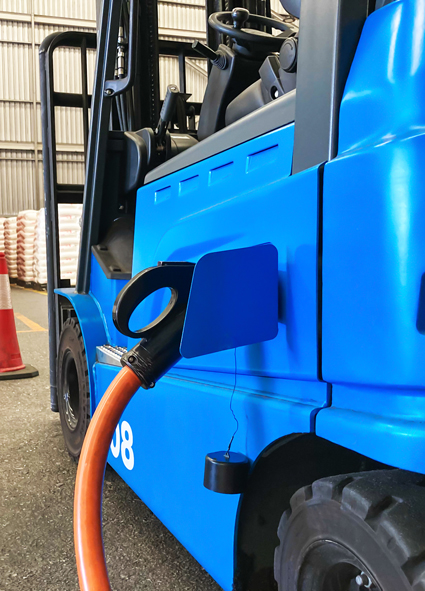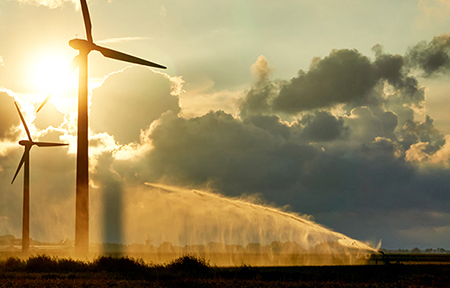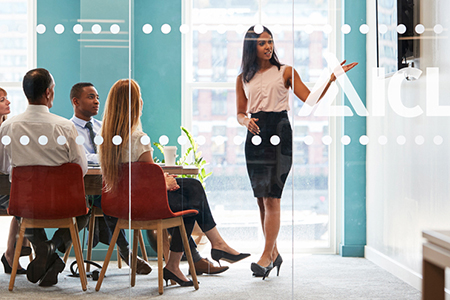From family connections to supply chains, the pandemic has caused unprecedented global disruption. But despite the upheaval, we’ve seen an awakening as businesses and people aspire to do and be more. We feel it from you and from ourselves. The past two years have intensified expectations of Corporate Social Responsibility (CSR) from the businesses that you and we support.
It’s not enough to make good products. There’s a responsibility to work toward a better world—for the environment, the people, and the communities we impact and serve. That’s why we’d like to share some of the progress ICL has made tackling global sustainability challenges, guided by the United Nations’ Sustainability Development Goals.
ICL’s Chairman of the Board and our President and CEO said it well in a joint message released with our recent ICL 2020 Corporate Responsibility Report: We view the climate crisis as one of the greatest challenges ever faced. As makers of the industry’s most trusted professional fertilizer brands, including Osmocote controlled-release fertilizers and Peters water-soluble fertilizers, we remain committed to caring for each other and our world.
Greenhouse gas emissions
Reductions in our global greenhouse gas emissions (GHGE) remain a priority at ICL. There’s no question that fertilizer production demands extensive energy. But as GHGE-fueled global warming progresses, efficient fertilizers are even more critical for growers and farmers like you.

Since 2008, ICL has reduced our companywide GHGE by more than 24%. We’ve now updated our sustainability vision with two new goals: achieve a 30% reduction in GHGE by 2030 (compared to a 2018 baseline), and become carbon neutral by 2050. We’re pleased to report we’re on track to meet those goals.
Compared with our 2018 base emissions, we’ve reduced our Scope 1 and Scope 2 GHGE by 10.5%. This represents the direct emissions from our own or controlled sources, plus indirect emissions from the generation of our purchased energy. This includes a 7% reduction in 2020, well above our annual reduction target of 3% year-over-year.
As we reduce our carbon footprint, we’re conducting detailed lifecycle analyses (LCA) of our products across the full value chain. And we continue to focus on research and development and sustainable innovation as we grow.
Renewable energy
If you’ve been following our progress, you know 2019 marked some green energy milestones for us. The majority of ICL’s European sites transitioned to 100% renewable electricity. A move to natural gas in other facilities reduced GHGE and other emissions, too.
Through additional transitions to other green energy sources, including wind and hydroelectric, we cut our global carbon footprint by 24,000 metric tons that year. With 2020’s green energy advances, we tripled that reduction.

Along with progress come more plans and goals. We project installing solar energy in several facilities. We now have our sights set on a 50% increase in renewable energy consumption by 2040.
Circular economy
As industries worldwide look at waste more closely, the need for urgent change is clear. In the current linear economy, production resources pass through the chain and end as waste. But in a circular economy, would-be wastes become inputs for other processes and products—helping preserve resources along the way.
At ICL, we’re seeking ways to develop new, more sustainable products from would-be waste, including our by-products. We’re actively piloting and implementing processes to close the loop in our facilities and see the circle complete. By redesigning products and production methods, we can turn by-products and waste products into cost-efficient, higher value-added products better for the earth.
As part of our sustainability vision, we’ve set a target of increasing circular economy by recycling and reusing an additional 3% of waste streams, year-over-year. This goal includes our internal waste streams as well as those of external partners.
Diversity and community
ICL’s commitment to social responsibility and best practices for corporate governance embraces people as well as production. We believe diversification is essential to the resilience, innovation and social fabric that help ensure our continued success.
In January 2021, ICL was selected for the third straight year as one of 380 public companies included in the 2021 Bloomberg Gender-Equality Index (GEI). This index tracks the performance of public companies committed to transparency in disclosing their efforts to support and advance gender equality.
One ICL goal is to employ women in at least 30% of senior positions globally. In 2020, we surpassed 20%—a significant increase over our 13% in 2018. The percentage of women serving as officers in ICL’s executive global management also increased, rising from 11% in 2017 to 27% in 2020.

We also work to support the communities we impact. For 2020, ICL contributed roughly 9,650 hours of employee volunteer work at the company’s expense. However, we’re equally proud to report our employees contributed an additional 9,120 hours of volunteer work after working hours, which we encouraged and helped facilitate.
While we’re grateful for our progress on all these fronts, there’s still a lot to do. This we promise: We’ll hold fast to sustainability principles as we work toward a better world and bring you more efficient, more sustainable products to help you grow. That’s part of our commitment to our planet, our communities, our people—and you.
